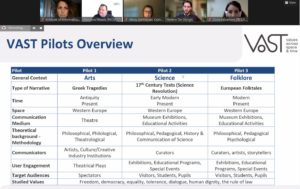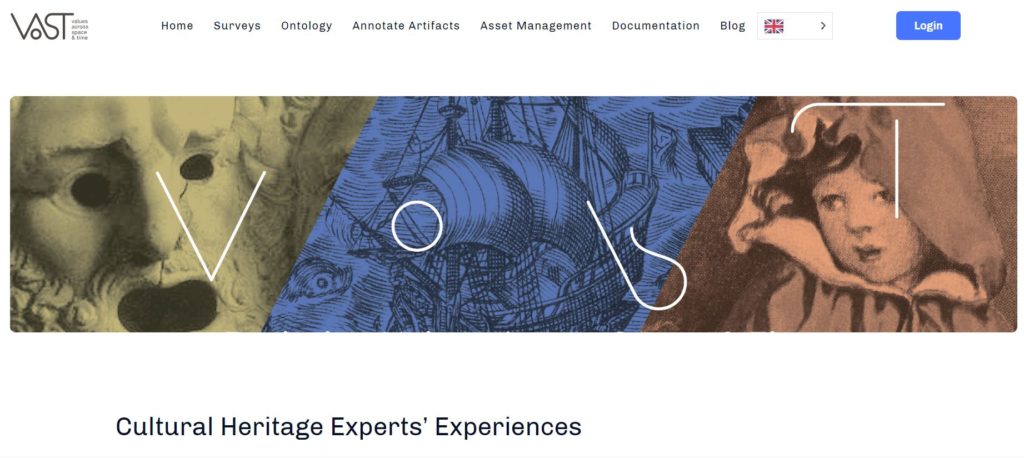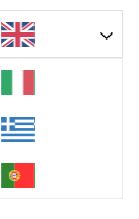On 28 November 2022, the research team of the University of Milan (UMIL) joining the VAST Project, participated in the 1st Italian Workshop on AI for Cultural Heritage (AI4CH22) which was held in conjunction with the 21st International Conference of the Italian Association for AI (AIxIA 2022) at the University of Udine (Italy).
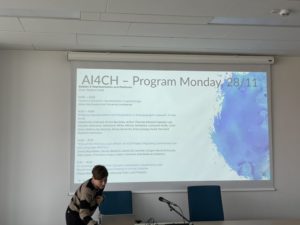
During the workshop, Dr. Stefano Montanelli, Dr. Alfio Ferrara, and Dr. Martin Ruskov presented the paper “Detecting the Semantic Shift of Values in Cultural Heritage Document Collections” and joined a fruitful, constructive discussion with the workshop participants.
A few words about the Workshop
The workshop on Artificial Intelligence for Cultural Heritage (AI4CH22) aims at bringing together researchers, policymakers, professionals, and practitioners to explore the main issues concerning the application of Artificial Intelligence to cultural heritage. In particular, it aims at fostering interdisciplinary and multi-disciplinary research on tangible and intangible cultural heritage, promoting the use of Artificial Intelligence models, methodologies, and tools for the study, research, preservation, and dissemination of cultural heritage content. At the same time, the workshop will encourage discussion on the ethical aspects and sustainability issues involved in the management, delivery, and conservation of cultural heritage, with a specific focus on the involvement of all kinds of stakeholders so as to represent the different perspectives and communities involved in cultural heritage practices.
You can find more info about the Workshop in the link:https://ai4ch.di.unito.it
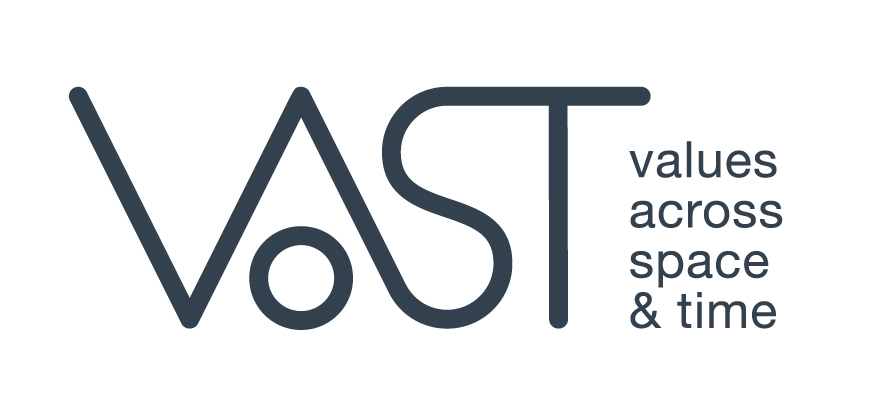
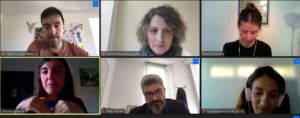
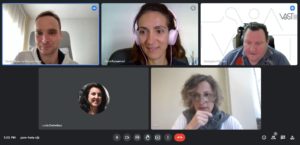
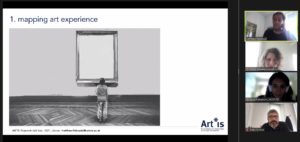
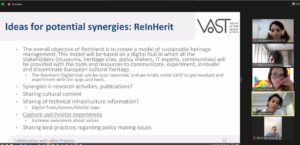 ReInHerit is an Horizon2020 project that aspires to disrupt the current status quo of communication, collaboration, and innovation exchange between museums and cultural heritage sites, in a sense that it will connect cultural heritage collections and sites and present Europe’s tangible and intangible heritage to citizens and tourists in their broader historical and geographical contexts. The project proposes a very innovative model of sustainable heritage management through which a dynamic network will be born.
ReInHerit is an Horizon2020 project that aspires to disrupt the current status quo of communication, collaboration, and innovation exchange between museums and cultural heritage sites, in a sense that it will connect cultural heritage collections and sites and present Europe’s tangible and intangible heritage to citizens and tourists in their broader historical and geographical contexts. The project proposes a very innovative model of sustainable heritage management through which a dynamic network will be born.